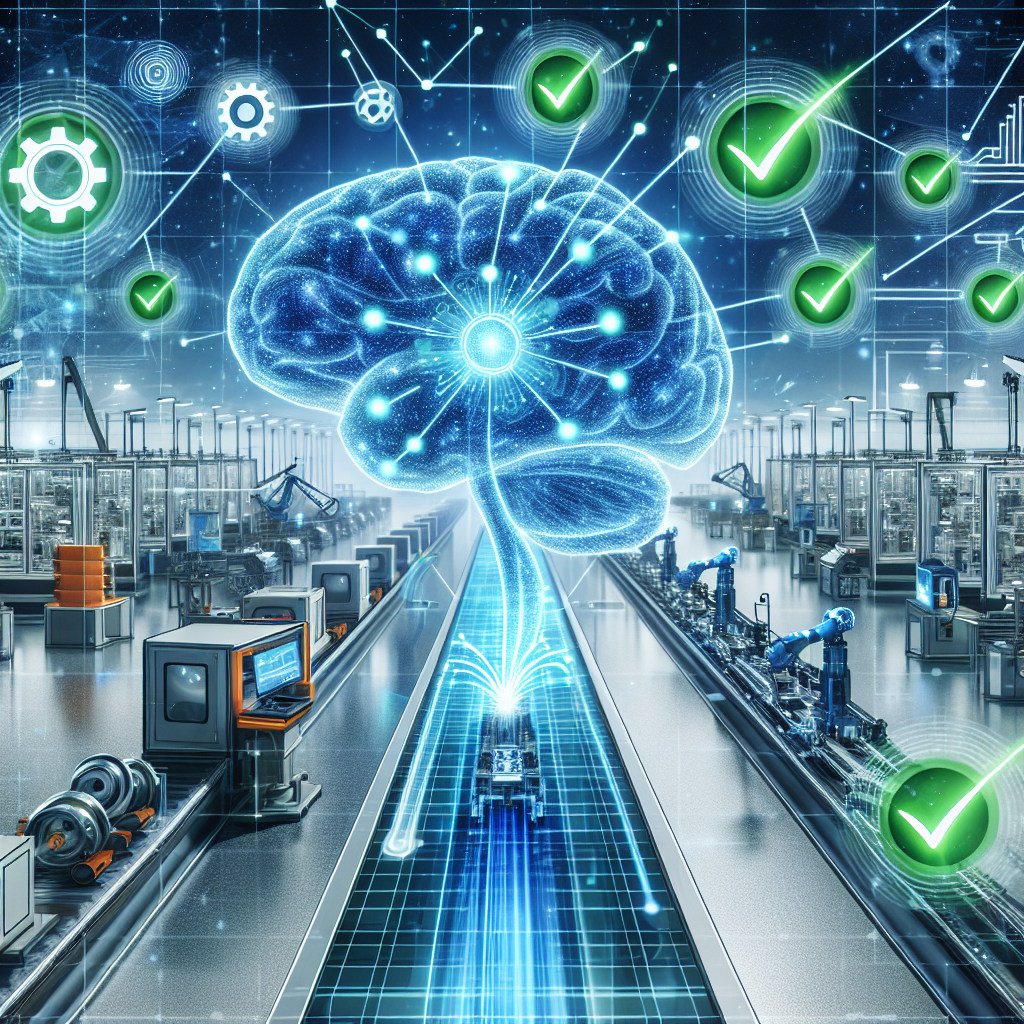Artificial Intelligence (AI) has been revolutionizing various industries, and lean manufacturing is no exception. By integrating AI technology into lean manufacturing processes, companies can achieve greater efficiency, productivity, and cost savings. In this article, we will explore the benefits of AI in lean manufacturing and how it can transform the way companies operate.
Benefits of AI in Lean Manufacturing:
1. Predictive Maintenance: One of the key benefits of AI in lean manufacturing is its ability to predict equipment failures before they occur. By analyzing data from sensors and machines in real-time, AI can identify patterns and trends that indicate potential issues. This allows companies to schedule maintenance proactively, reducing downtime and increasing overall equipment effectiveness (OEE).
2. Quality Control: AI can also be used to improve quality control processes in lean manufacturing. By analyzing data from sensors, cameras, and other sources, AI can detect defects and anomalies in real-time. This helps companies identify and address issues early in the production process, reducing waste and improving product quality.
3. Inventory Management: AI can help companies optimize their inventory management processes by analyzing demand forecasts, production schedules, and other factors. By using AI algorithms, companies can better predict demand, reduce excess inventory, and minimize stockouts. This can lead to significant cost savings and improved customer satisfaction.
4. Production Planning: AI can also enhance production planning processes in lean manufacturing. By analyzing historical production data, demand forecasts, and other factors, AI can optimize production schedules, reduce lead times, and increase throughput. This can help companies improve their overall efficiency and responsiveness to customer demand.
5. Process Optimization: AI can help companies identify opportunities for process optimization in lean manufacturing. By analyzing data from sensors, machines, and other sources, AI can identify bottlenecks, inefficiencies, and other areas for improvement. This allows companies to make data-driven decisions to streamline operations and increase productivity.
6. Worker Safety: AI can also improve worker safety in lean manufacturing by analyzing data from sensors and cameras to detect potential hazards. By using AI algorithms, companies can identify safety risks in real-time and take proactive measures to prevent accidents. This can help companies create a safer working environment for their employees and reduce the risk of injuries.
7. Continuous Improvement: AI can facilitate continuous improvement in lean manufacturing by providing real-time insights and recommendations for process optimization. By analyzing data from various sources, AI can help companies identify areas for improvement and implement changes quickly. This can help companies stay ahead of the competition and drive ongoing improvements in efficiency and productivity.
FAQs:
1. How can companies integrate AI into their lean manufacturing processes?
Companies can integrate AI into their lean manufacturing processes by investing in AI technology, collecting and analyzing data from sensors and machines, and implementing AI algorithms to optimize production processes. Companies can also work with AI experts and consultants to develop customized AI solutions that meet their specific needs.
2. What are some of the challenges of implementing AI in lean manufacturing?
Some of the challenges of implementing AI in lean manufacturing include data privacy and security concerns, lack of skilled AI talent, and resistance to change from employees. Companies may also face integration issues with existing systems and processes when implementing AI technology. However, companies can overcome these challenges by investing in training programs, developing clear communication strategies, and collaborating with AI experts to ensure successful implementation.
3. How can AI help companies improve their overall efficiency in lean manufacturing?
AI can help companies improve their overall efficiency in lean manufacturing by analyzing data in real-time, identifying opportunities for optimization, and making data-driven decisions. By using AI algorithms to optimize production schedules, inventory management, and quality control processes, companies can increase productivity, reduce costs, and improve customer satisfaction. AI can also help companies identify bottlenecks and inefficiencies in their operations, enabling them to make continuous improvements to their processes.
In conclusion, AI offers numerous benefits for lean manufacturing, including predictive maintenance, quality control, inventory management, production planning, process optimization, worker safety, and continuous improvement. By integrating AI technology into their operations, companies can achieve greater efficiency, productivity, and cost savings. While there may be challenges in implementing AI in lean manufacturing, companies can overcome these obstacles by investing in training programs, collaborating with AI experts, and developing clear communication strategies. Overall, AI has the potential to transform the way companies operate in lean manufacturing and drive ongoing improvements in efficiency and productivity.

